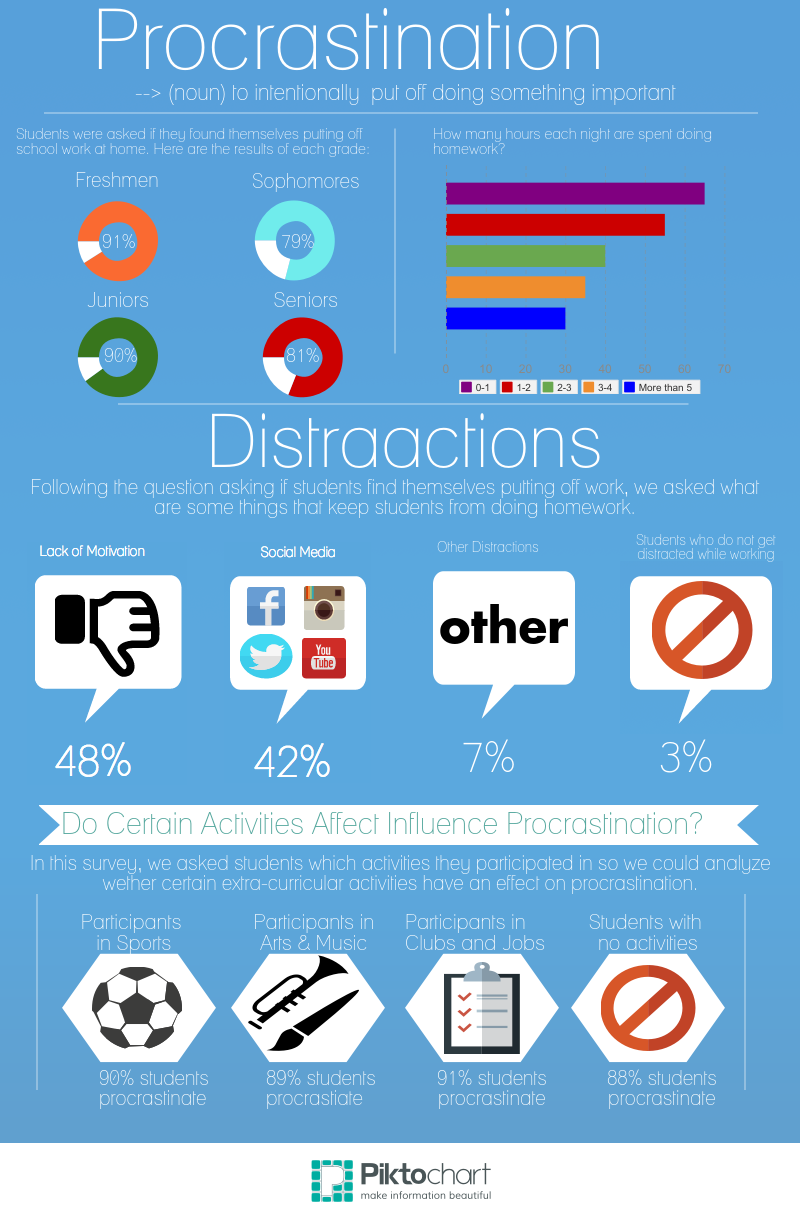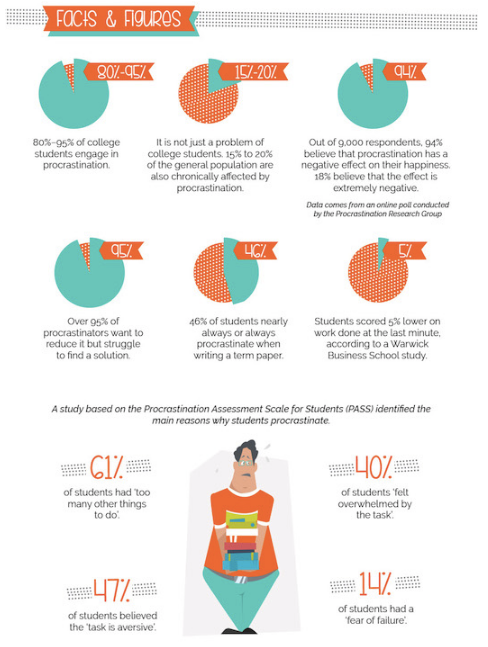
We all know this problem: We have a task ahead, but somehow we just don't feel like starting. We tell ourselves a good reason why we can't start yet and put it off. We wait until the last minute and create much more stress for ourselves that way!
That is PROCRASTINATION.
But why do we even procrastinate? Why is this a problem that so many people struggle with?

Neuropsychologists also categorize Procrastination as a problem with our "Executive Function".
Executive Function basically means a set of skills that lets us plan ahead, prioritize multiple tasks and then carry them out.
And people that lack in these skills are procrastinators!
Executive Function contains many different stills, and procrastination can happen at many different steps as well.
While one person might start working right away but will then get stuck in the process, someone else might be putting it off all day and not start until late, while a 3rd person might make a complex plan to work but never actually do it. While all of these people end up procrastinating and putting off the task, they have problems with different steps in the process.
Another view on procrastination is that it really has to do with our mood regulation.
We put things off because they are unpleasant, we don't want to think about it, so we just pretend like the problem doesn't exist to make ourselves feel better.
But while we ignore it, the problem grows and grows ... and finally, it will catch up to us.
Mood Regulation and Executive Function are actually both linked to Self Regulation.
This means that you are able to control your own actions and emotions, plan ahead rationally and act towards your goals.

Is procrastination genetic?
To find this out, researchers have conducted a study with fraternal and identical twins. Since they grew up in the same social environment, it's safe to assume that they had almost the same influences and similar experiences in life.
And the result was that in about 50% of the cases, procrastination had a link to the genetics.
This may not sound very accurate, but many inherited behavioural traits function this way.
Environmental factors have a big influence so there will always be some variation.
But another very interesting result from the study was, that variations in procrastination patterns was linked to variations in IMPULSIVENESS.
So procrastinating and reacting hastily or aggressively might be traits that are inherited as a pair.

And there might also be evolutionary reasons for our procrastination habits:
Our ancestors had to fight for survival, so it made no sense for them to plan anything long-term.
They had to fight to survive each day, and fight for every meal.
This means that they gave short-time tasks much more priority, and started to put things off that weren't as urgent.
So they might have trained themselves to this behaviour, and passed it on to their kids and great-great-great grandkids.
But we all know that in today's world,long-term goals are much more important and procrastination basically doesn't have any benefits anymore.
While this is a logical theory, you can't just blame your ancestors for your procrastination problem.
There are a lot of other factors that play into this!
While some people claim that procrastination helps them because they work better under pressure, we all know that it mostly has negative effects.
Researches have even found out that procrastination may be linked to anxiety and depression, and that people who continuously procrastinate have more stress and are more prone to high blood pressure and heart diseases.

While there are many self-help tips out there on how to beat your procrastination habits, this is actually a complex topic and quite a difficult behavioural pattern to overcome.
But there is one key factor that will make it easier for you to procrastinate less:
Researches on the University of New York did some tests on undergraduate psychology students, and the result was that people procrastinate less if they have smaller tasks (with closer deadlines).
Instead of having one major exam or paper at the end of the semester, the work can be split into multiple smaller tests.
Since these will happen more frequently, the deadlines will be closer, so the students are less prone to procrastinate on the task.
Also, every time one test is finished, they feel like they have the positive feeling that they achieved something!
You can make use of this strategy for your own goals as well: if you want to achieve something, break it up into bite-size pieces.
This way, you will always feel good if you have finished one task, and your deadline will be so close that you can't really procrastinate to begin with.
- Instagram -

© Sirwinchester
